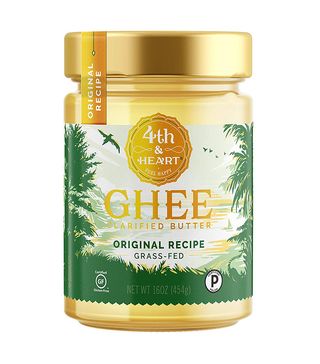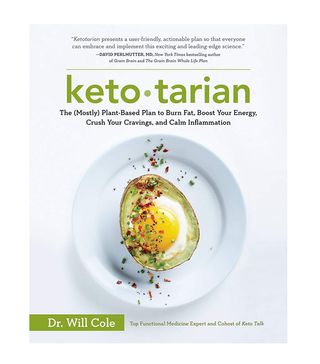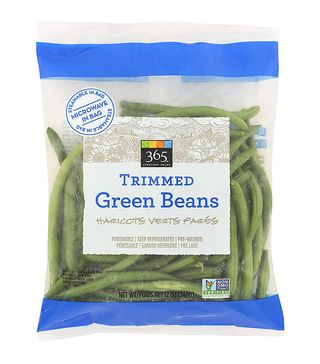Your Ultimate Guide to the Vegetarian Keto Diet
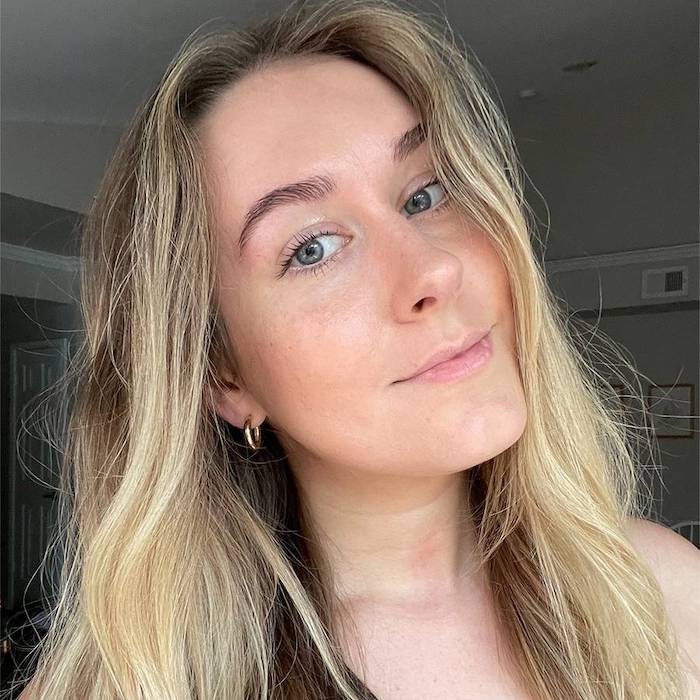
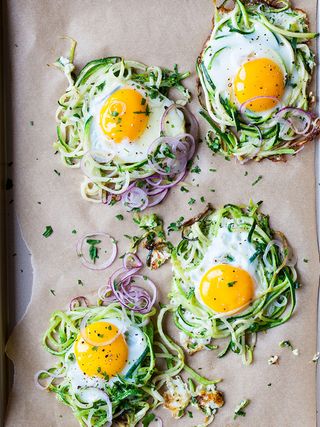
The ketogenic diet has received a lot of attention this year, probably because celebrities like Kourtney Kardashian, Megan Fox, and Adriana Lima are among its devoted followers. (Halle Berry even shared a rundown of her daily ketogenic meals with her Instagram followers). Many nutrition experts, wellness bloggers, and regular health-minded individuals have analyzed its benefits and downfalls, so to say it's simply "buzzy" would be an understatement. It would be more accurate to call it a dietary movement.
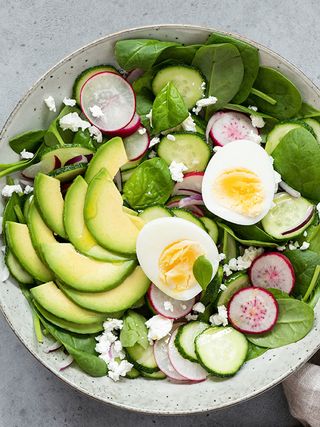
According to nutritionist Isabel Smith, MS, RD, CDN, the ketogenic diet "is basically low-carb, high-fat, and moderate protein." Generally, it consists of 70% fat, 20% protein, and 10% carbohydrates. The goal of this diet is to put the body in a state of ketosis, which means your body burns fat as its main energy source—not carbs or protein. People say it could aid in healthy weight loss, decrease inflammation, and more. But what many people don't know is if it can pair with a vegetarian lifestyle since it so strictly emphasizes fat and protein over carbohydrate consumption. It's no secret that many followers of the keto diet load up on meat and fish, which makes the diet seem rather murky and unapproachable for vegetarians.
Long story short: It's totally possible to combine a vegetarian and ketogenic diet. You just need to know which plant-based foods you should fill up on and which ones you should avoid. Luckily, Smith has some expert tips and suggestions to steer us along the right path.
Eat Healthy Plant-Based Fats
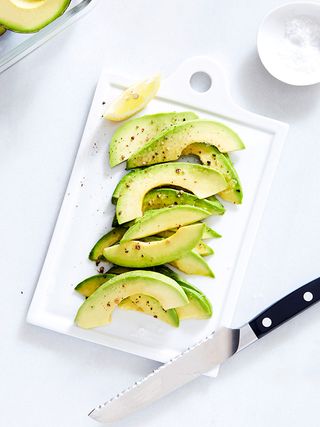
First things first: When you hear that the keto diet emphasizes consuming fats over carbs, that doesn't mean fats from drive-through fries or something of that sort (as sad as that may seem). It means consuming fats from things like avocado, eggs, nuts, seeds, ghee, and coconut oil. These healthy fats fuel your body's energy in replacement of carbohydrates, contributing to the aforementioned possible benefits of the diet. That's why these foods are a good place to start when talking about all things vegetarian and keto and can be considered as the building blocks of many healthy vegetarian/keto recipes.
Avoid Consuming Too Many Grains
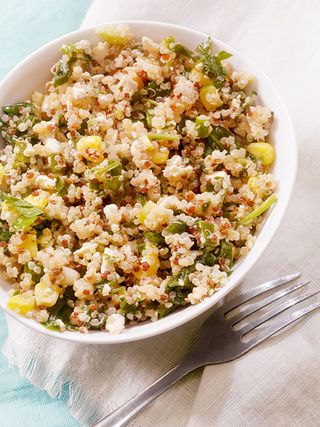
This one's kind of sneaky and a little difficult too, depending on your current dietary preference. If you're vegetarian, it's likely that a large portion of your diet is attributed to grains and beans like quinoa, rice, and lentils. According to Smith, these foods contain too many carbohydrates and not enough protein to make them foundational foods for following a keto diet. So instead of eating a quinoa bowl or a stir-fry on a bed of white rice, try making a keto-friendly vegetarian lasagna.
Supplement Protein

For many vegetarians, beans and grains constitute a large portion of their daily protein consumption, so limiting them means you'll need to supplement your diet with something else. Smith suggests looking to "organic dairy or a low-carb protein powder that's plant-based" for meeting healthy protein consumption standards. Perhaps you could try incorporating low-carb Greek yogurt, nut butter, or whole eggs into your daily diet.
Eat Your Vegetables
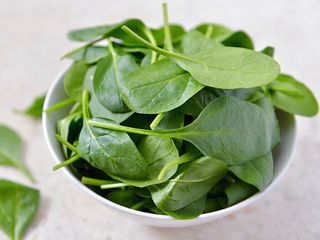
As with any healthy diet plan, especially a vegetarian one, be sure you're consuming a diversity of plant-based whole foods like fruits and vegetables. Popular vegetables to eat as a part of the keto diet are green peppers, spinach, lettuce, green beans, and cabbage, among others. Try to avoid starchy and carb-heavy vegetables like potatoes. As for fruit, some people recommend avoiding too many berries or citrus fruits, which contain natural sugars (aka carbohydrates). However, this doesn't mean you should avoid them completely. As always, eating a colorful and varied diet, no matter the plan you're following, is key to maintaining good health and wellness.
The Verdict
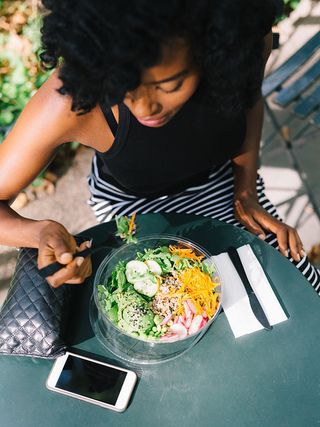
You should consult a professional before committing, like you would with any new diet, as it might not necessarily apply to extenuating health circumstances. It's also helpful to hear an expert's opinion firsthand. As for Smith, she's not entirely sold on the keto diet in the first place. "Some principles of the keto diet can be helpful," she says, such as few refined carbs and sugars. "When done right (more plant-based that is) it can be a great way to get some healthy fats in, but I don't find, especially for women, that it contributes to significant weight loss if that's a goal."
While we're on the topic, it's also possible that you might need supplementation to your diet to achieve utmost wellness. "This is case by case, but often, in general, vegans/vegetarians need iron, B complex, b12, extra protein, and potentially zinc and biotin as well," Smith tells us—just another reason consulting an expert can be so helpful.
Next up: This Is the Best Diet to Reduce Your Cancer Risk, According to an Oncologist
This article was updated by Sarah Yang.
Disclaimer
This article is provided for informational purposes only and is not intended to be used in the place of advice of your physician or other medical professionals. You should always consult with your doctor or healthcare provider first with any health-related questions.

Kaitlyn McLintock is an Associate Beauty Editor at Who What Wear. Although she covers a wide range of topics across a variety of categories, she specializes in celebrity interviews and skincare and wellness content. Having lived in Los Angeles and Austin, Texas, she recently relocated back to her home state of Michigan where she works remotely. Prior to Who What Wear, she freelanced for a variety of industry-leading digital publications, including InStyle, The Zoe Report, Bustle, Hello Giggles, and Coveteur. Before that, she held a long-term internship and subsequent contributor position at Byrdie. When she's not writing, researching, or testing the latest and greatest beauty products, she's working her way through an ever-growing book collection, swimming in the Great Lakes, or spending time with family.
-
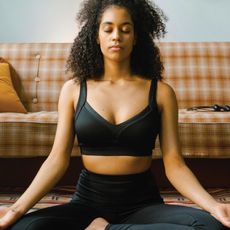 It's Time to Get Our Nutrition in Check for Summer—This App Is Making It Easy
It's Time to Get Our Nutrition in Check for Summer—This App Is Making It EasyThe recipe ideas are endless.
By Who What Wear
-
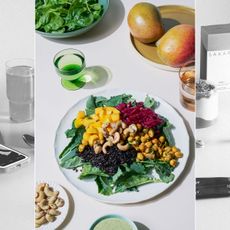 I Only Ate Sakara Life Meals for 30 Days—Here Are 7 Things That Happened
I Only Ate Sakara Life Meals for 30 Days—Here Are 7 Things That HappenedThe brand's 30-Day Fall Reset is finally here.
By Erin Jahns
-
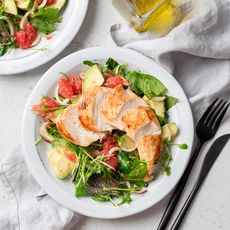 The 6 Warning Signs You're Not Getting Enough Protein
The 6 Warning Signs You're Not Getting Enough ProteinAnd what to eat to up your intake.
By Sarah Yang
-
 Everything This Professional Ballet Dancer Eats to Fuel Her For Performances
Everything This Professional Ballet Dancer Eats to Fuel Her For PerformancesHer grocery staples include high-quality French butter.
By Candice Aman
-
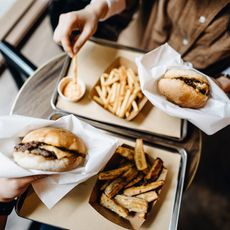 These 8 Foods Are the Worst for Rosacea—Here's What to Eat Instead
These 8 Foods Are the Worst for Rosacea—Here's What to Eat InsteadControl those flare-ups.
By Sarah Yang
-
 15 Things That Cause Bloating and How to Get Rid of It ASAP
15 Things That Cause Bloating and How to Get Rid of It ASAPTry these.
By Sarah Yang
-
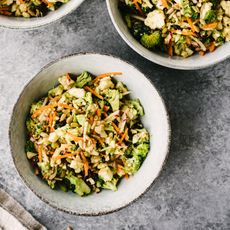 Is the Alkaline Diet Overhyped? What Experts Want You to Know
Is the Alkaline Diet Overhyped? What Experts Want You to KnowHere's how it works.
By Sarah Yang
-
 I'm an Imperfect Dietitian and My Key to Eating Healthy Meals Is Convenience
I'm an Imperfect Dietitian and My Key to Eating Healthy Meals Is ConvenienceTake a peek at my weekly grocery staples.
By Candice Aman
